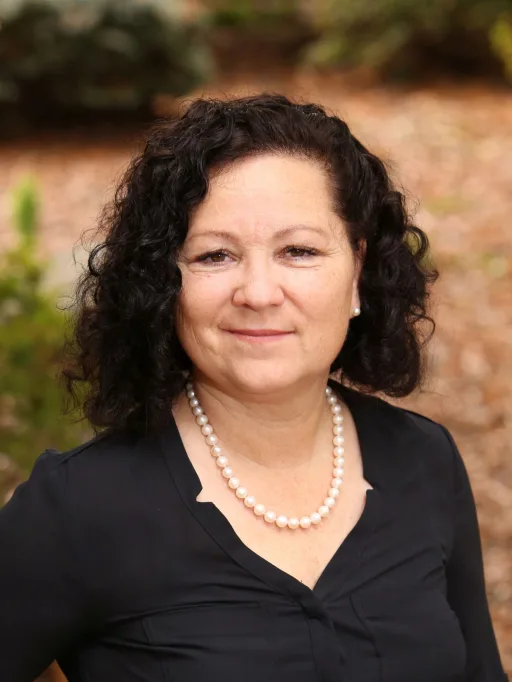Montessori Meaning – What is Montessori Learning?
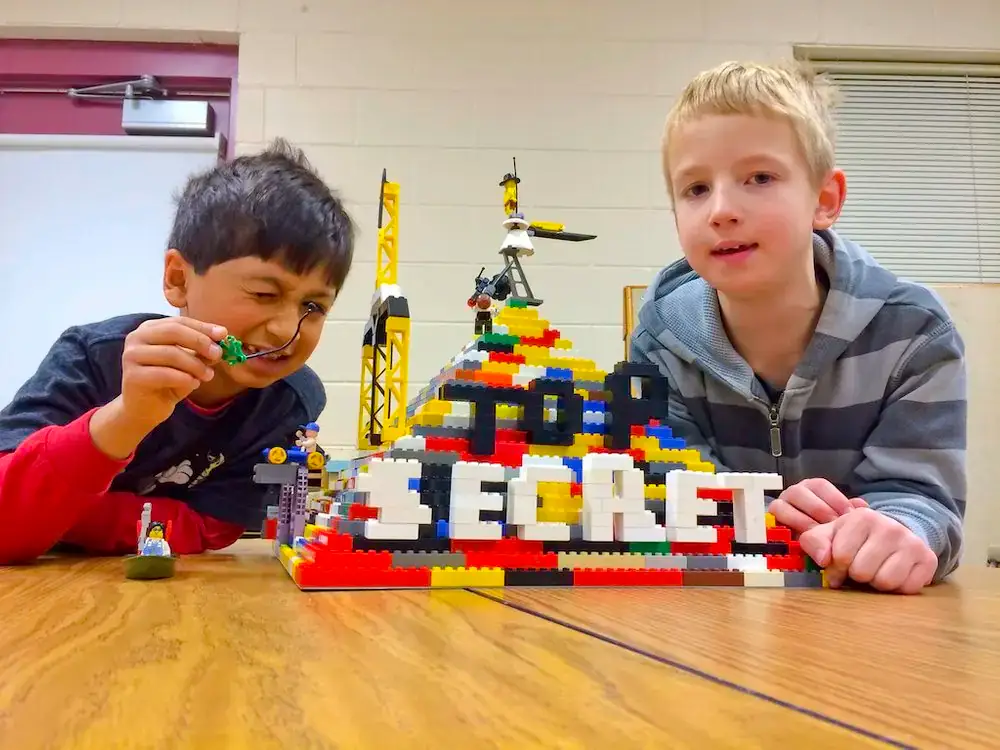 You need to
You need to
 ABOUT
MONTESSORI
ABOUT
MONTESSORI
Montessori learning is a child-centered educational approach that emphasizes independence, exploration, and self-directed learning. Developed by Dr. Maria Montessori in the early 20th century and now popular worldwide, the Montessori philosophy is based on the idea that children are naturally curious and motivated to learn, and that they learn best when they are given the freedom to explore and discover on their own.
- 37 YearsSince Oneness-Family School was founded in 1988.
- 75 CountriesRepresented by our students, families, faculty, and staff.
- 1 FamilyUnited by a belief in courage, compassion and love of learning.
The Top Ten Reasons Why Montessori is Successful
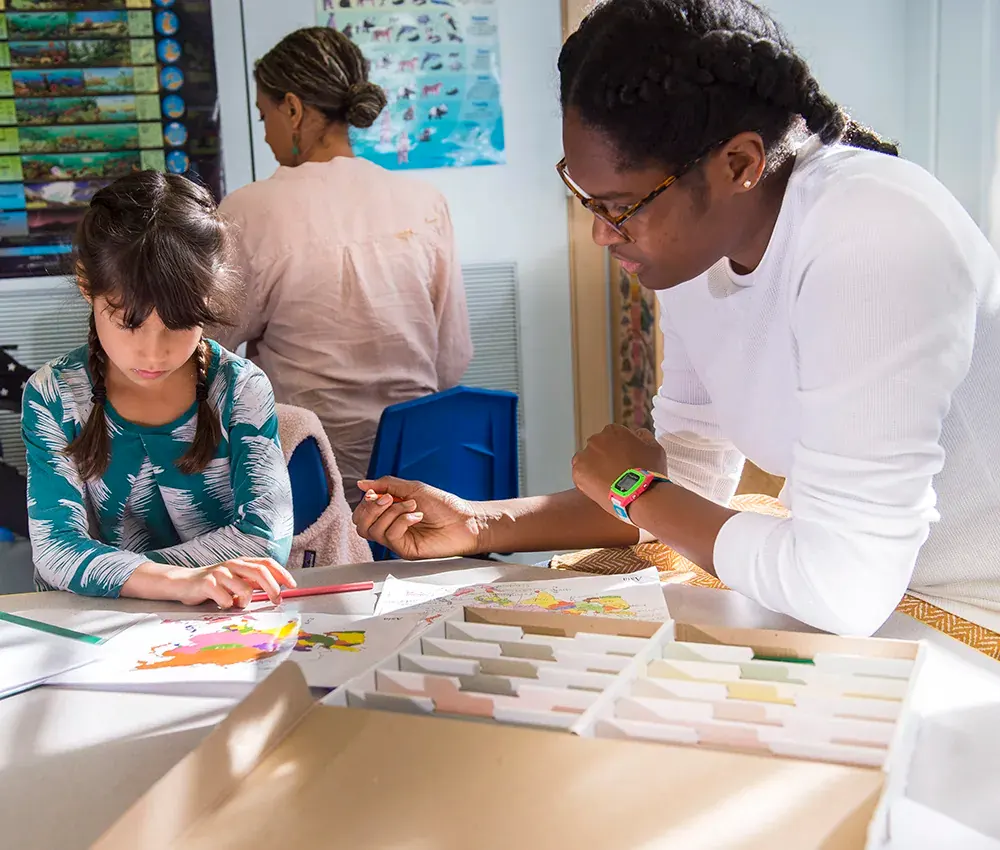
Montessori uses hands-on materials and real specimens to make the learning process concrete and exciting
Learning is not in the abstract – it is real and relevant to the child’s level of understanding and everyday experience. This keeps students engaged deeply in the learning process, which helps them retain a love of learning instead of becoming bored.
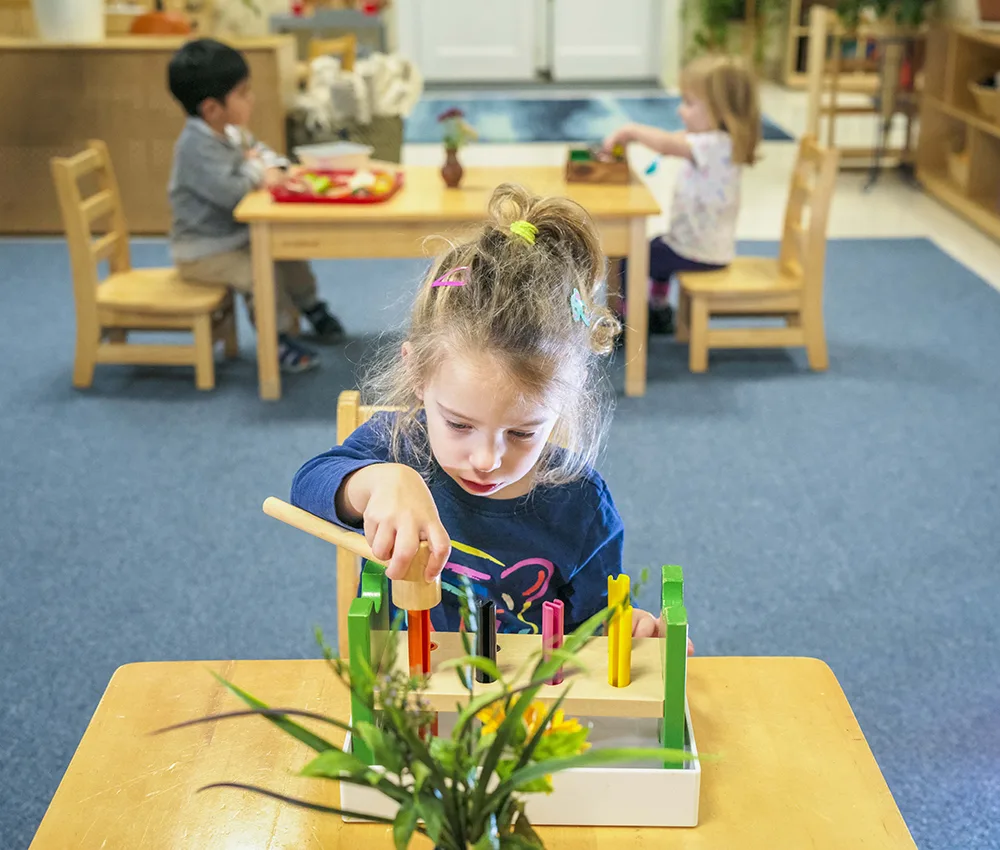
Montessori is a dynamic learning approach
In a Montessori environment, many things are happening at the same time. Teachers may be giving separate lessons to different small groups while other students are doing independent assignments. Teachers monitor student lessons and work every step of the way. The benefit is that students are getting lessons right for them and are also learning to work on their own to accomplish tasks.

In Montessori – the focus is always on the whole – the big picture
Facts are easily forgotten unless they are taught in a broader context. Montessori kids enjoy learning about “big ideas” – the essential concepts of science, geography, and history. They learn these concepts through inspiring stories and creative follow-up activities. Montessori students also continuously learn how to make connections between ideas in different subjects. The benefit is that Montessori students remember what they have learned at a deeper level.
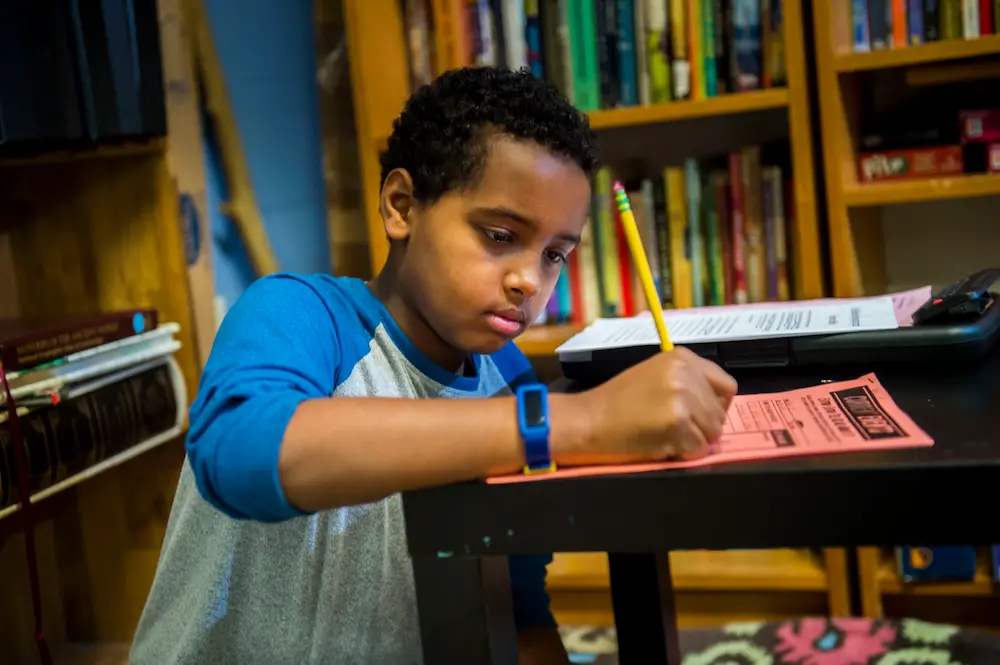
Students progress at their own rate
In a Montessori school, there is no limit to how fast a student can progress. When a student is ready for a new challenge, the teachers are ready to help them to meet it. As a result, Montessori schools like OFS have students reading far above grade level, doing advanced math, learning research methods and utilizing technology to learn and to make presentations.

Multi-age classrooms
Maria Montessori discovered the magic of multi-age classrooms over 85 years ago. Now, the concept has been adopted, in modified form, in many non-Montessori schools everywhere. A multi-age classroom taps into our natural desire to learn from others who know more than us and our joy in teaching others what we know. In addition, the multi-age classroom allows students to go through a 3-year leadership cycle, allowing students and families to stay with a team of teachers to build a deep relationship of trust and communication.
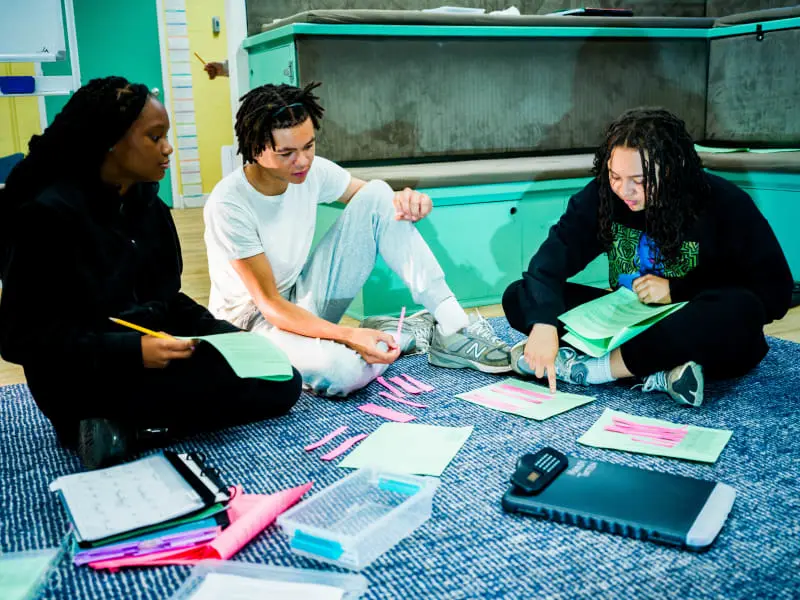
Intrinsic motivation
Montessori schools do not attempt to motivate by grades, threats, punishments, or rewards. Rather, with emphasis on choice and initiative, students take charge of their learning process in partnership with their teachers. Students do assignments not because of the grade they will get but because it has meaning and relevance to them. The reward of learning is the learning itself – not just a grade. In a Montessori environment, assessment can take many forms, including individual or group student projects and presentations – which build very strong communication skills.
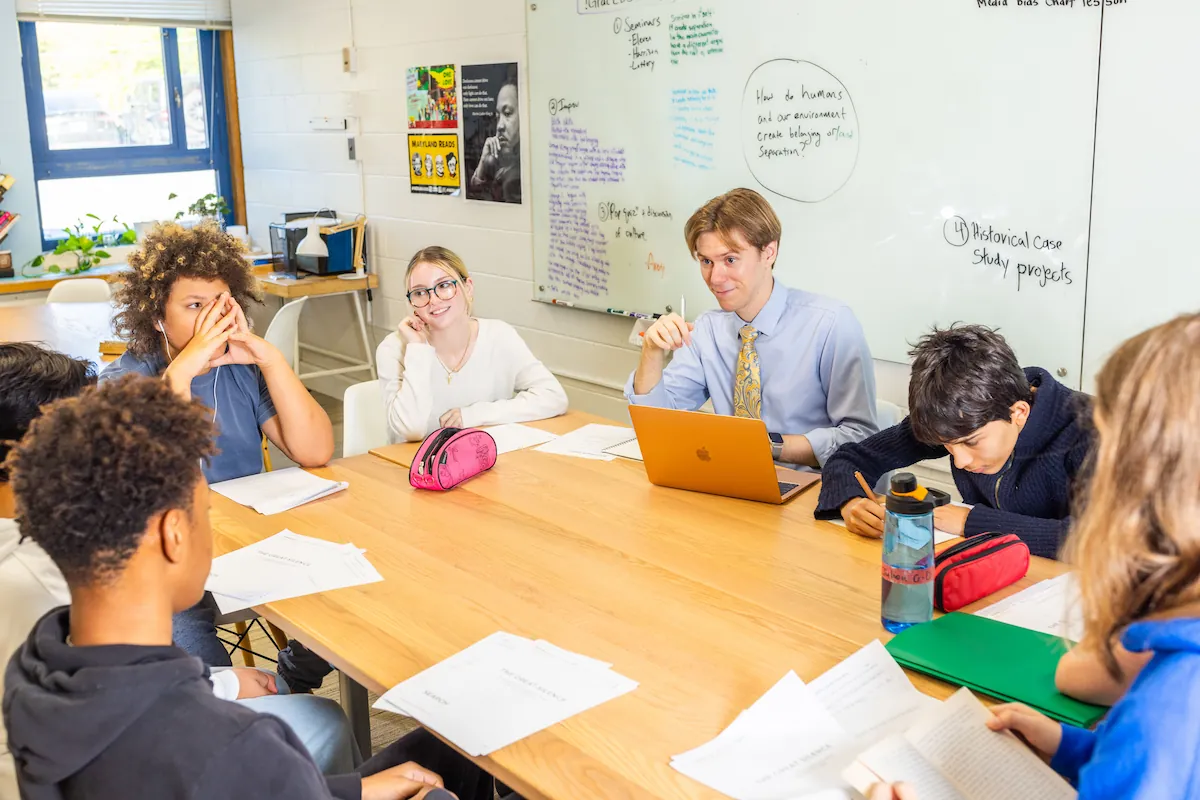
Non-competitive learning
Montessori students gain very strong self-confidence because they understand their talents and the areas in which they need to improve. Moreover, they learn to appreciate the gifts of others. How does this prepare them for the “real world”? The more solid students are in who they are – and the greater their ability to empathize with others – the better prepared they will be for future success.

Self-Organization
Montessori students begin to plan their days in preschool. At OFS, in grades 1-3, they learn to do a daily work plan in consultation with their teachers, which includes the lessons they must attend and the independent assignments they will do. When students graduate to grades 4-5, they begin to plan a week at a time, and in grades 6-8, they learn to look at the entire scope of a cycle of learning – about eight weeks.
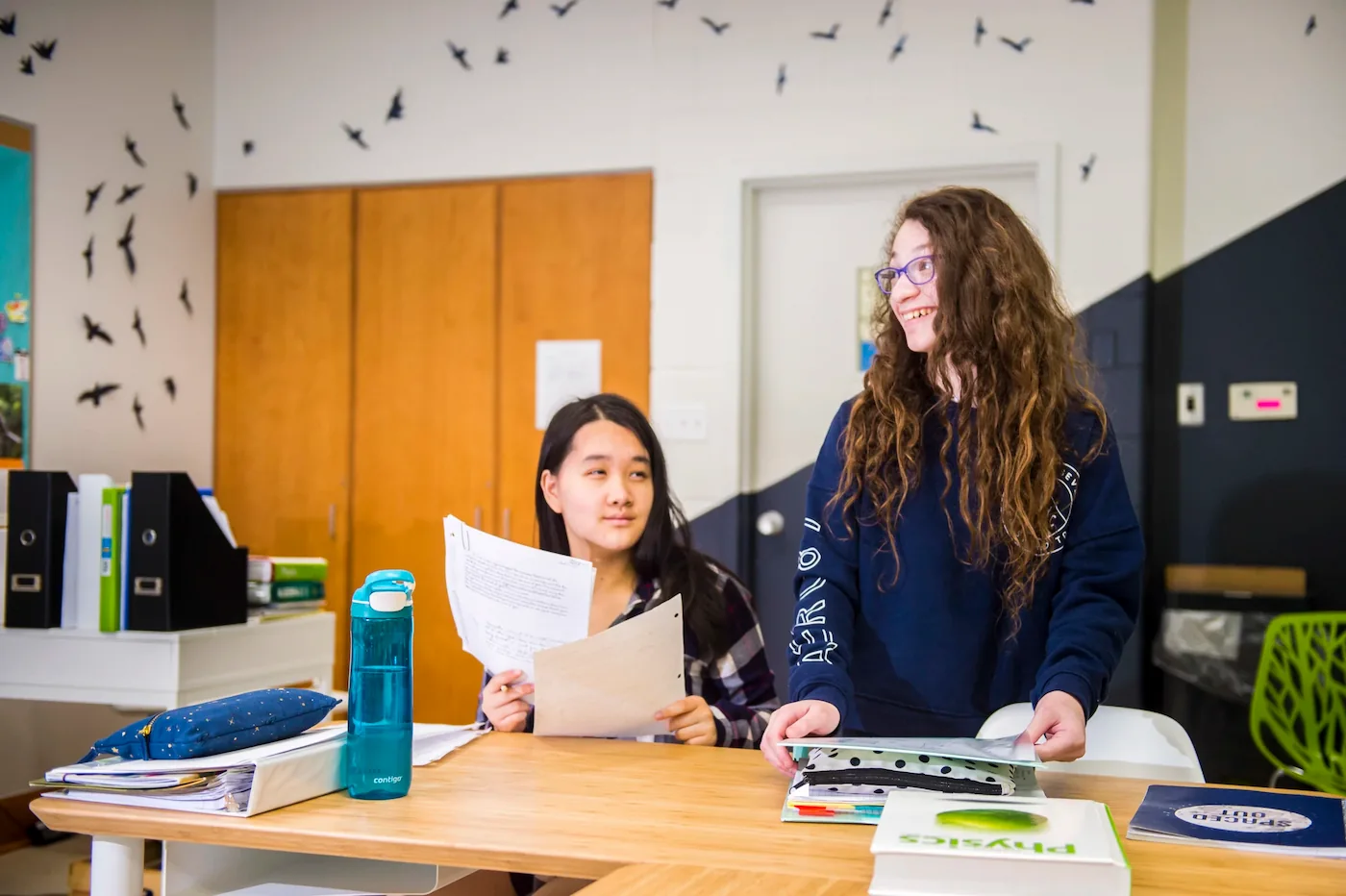
Montessori classrooms encourage students to ask questions and challenge assumptions
Students learn early on that their ideas are important –and that all great ideas come from deep thinking. Maria Montessori understood that the heart of learning is in the questions students ask. Moreover, where traditional learning focuses on “one right answer,” Montessori encourages students to discover more than one answer where possible. The benefit is that students learn to think differently about topics and to appreciate many viewpoints.
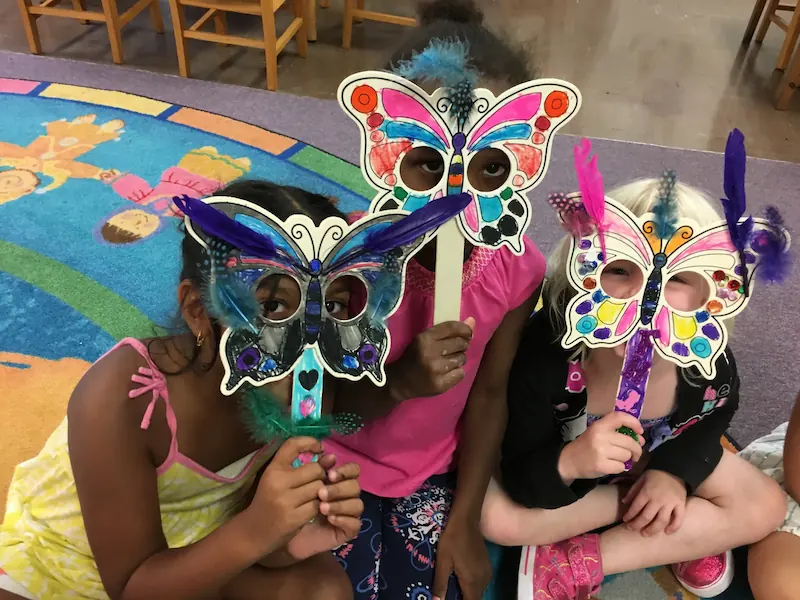
Part of a community
Both the social environment and the curriculum in a Montessori school are powerful reinforcements of the idea that we are part of a greater whole. From 2 years old onward, students learn how to care for their classroom and each other. Students learn to see their place in the community and the world and to understand that they have an important responsibility to support the well-being of our planet and its great web of life.
Quote: Néa Ranganathan
Even though it has been more than seven years since I attended Oneness, I have maintained a lifelong relationship with teachers and students.
Even though it has been more than seven years since I attended Oneness, I have maintained a lifelong relationship with teachers, administrators, current and former students. I have had the ability to participate in festivals, open houses, and extracurriculars at Oneness, which has made me feel closer to the community.
One of the most life-changing experiences was working on the musical ‘The Aristocats’ for the musical program. I have been doing theater all my life and when I was asked to help direct the musical, I did not hesitate to start brainstorming ideas. At Oneness, I was one of the most enthusiastic theater kids; ready to do any performance, from Bard Night to singing with Andrew. So I was thrilled to have the opportunity to continue that trend. I have been able to connect with many young students and introduce them to the wonderful world of theater.
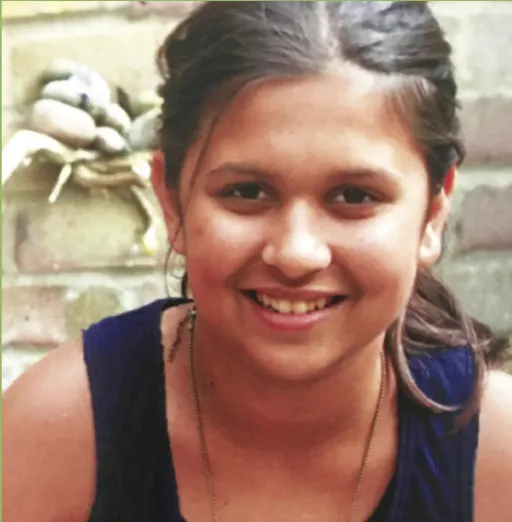
About Montessori Education
Developed by Dr. Maria Montessori in the early 20th century and now popular worldwide, the Montessori philosophy is based on the idea that children are naturally curious and motivated to learn, and that they learn best when they are given the freedom to explore and discover on their own. The approach emphasizes hands-on learning and sensory experiences, and encourages children to develop their own unique interests and passions.
One of the key principles of Montessori learning is that children should be treated with respect and dignity, and allowed to develop at their own pace. Teachers work closely with each child to identify their individual strengths and challenges, and create a personalized learning plan that is tailored to their needs.
In a Montessori classroom, children are given the freedom to choose their own activities and work at their own pace, with guidance and support from trained teachers. The environment is carefully designed to promote exploration and discovery, with materials that are specially designed to be engaging and educational.
Overall, Montessori learning is a holistic approach to education that values the development of the whole child – intellectually, socially, emotionally, and physically. It is an approach that encourages children to become independent, self-directed learners, with a deep love of learning that will last a lifetime.
Quote: Elise Van Leer (’13)
One of my main main takeaways from Oneness was developing a true curiosity about life and love for discovery.
One of my main main takeaways from Oneness was developing a true curiosity about life and love for discovery. From an early age, the Montessori approach taught me to be a hands-on learner and ask questions that matter.
I think it is what guided me toward science, which is an experimental field where new knowledge is always being created and old knowledge is being turned over. If I hadn’t been encouraged by the environment at Oneness, I wouldn’t have had such an intrinsic and sustaining desire to keep asking questions and always to remain a skeptic. I studied pharmacology at McGill University and feel fortunate to call on principles that were taught to me early on — compassion, creativity, and compromise — that are sometimes neglected in the hard sciences but are nonetheless so important. I will keep these principles foremost in mind as I study medicine at Emory University.
As for my favorite OFS memory, the one that stands out is traveling to London for a class trip in the 8th grade and jumping on the beds in the townhouse where we stayed while screaming along to “The Lion King.” It was a truly gleeful moment.
— Elise Van Leer, Student 2002-2013, Grades PS to 8

Recommended Resources
Titles by Maria Montessori
Secondary Resources on Montessori
- Montessori: The Science Behind the Genius
- Montessori: A Modern Approach: The Classic Introduction to Montessori for Parents and Teachers
- Montessori Learning in the 21st Century: A Guide for Parents and Teachers
- The Montessori Way
- Montessori Madness! A Parent to Parent Argument for Montessori Education
- How to Raise An Amazing Child the Montessori Way
- The Tao of Montessori: Reflections on Compassionate Teaching
- The Montessori Toddler: A Parent’s Guide to Raising a Curious and Responsible Human Being
- Montessori Play and Learn: A Parent’s Guide to Purposeful Play from Two to Six
- Teaching Montessori in the Home: The School Years
- Teach Me to Do It Myself: Montessori Activities for You and Your Child
